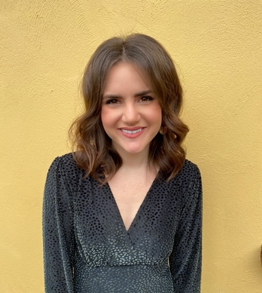Postcolonial Education Part II: Reflexions on Representation & Decolonization in the Curriculum
3 perspectives on the educational systems in different countries and societies
by Carleigh Garcia, Limerick, Ireland
This blog is a reflection on a particular experience in America, where grappling with shame and identity was reflected in a lack of representation in the literature curriculum. It touches on the importance of representation in relationship to pride in one’s ethnicity, and questions whether the likelihood of one continuing education is related to this as well. Hopefully, it is an opportunity for others to reflect on their experiences, the question of representation and decolonization, and the destruction caused by the lack of representation, and leads to further conversations on the importance of an inclusive curriculum.
I received a public education in the Denver, Colorado area prior to choosing to attend university at a Catholic, private college in Midwestern America. The region of the United States where I grew up, Colorado and many of its surrounding states, are heavily populated by people who would identify as Hispanic or Latino, including myself. A Hispanic or Latino person, regardless of their race, is a person who is of Cuban, Mexican, Puerto Rican, South or Central American, or other Spanish culture or origin (Iowa Data Center). In Colorado, thirty percent of students in primary and secondary schools are Hispanic (Latino Leadership Institute). Upon reflecting on my education as a female whose paternal ethnicity is Hispanic, I see it intertwined with many of the shameful feelings accompanying what it is to be Hispanic in my region, which was reinforced in the area of study closest to my heart, literature.
I was fortunate to complete a bachelor’s degree and thoroughly enjoyed my college experience. My English degree required two semesters of a survey course on American literature, where we studied works by indigenous Americans. While this is crucial and can be seen as a positive in our curriculum, it cannot begin at university. As of 2017, Colorado had the largest attainment gap between whites and Hispanics who attained associate’s and bachelor’s degrees; twenty-two percent of adult Hispanics hold higher education degrees, while white adults, not identifying as Hispanic, hold fifty-five percent (Latino Leadership Institute). When looking at one hundred secondary students in Colorado who are Hispanic, sixty-seven will graduate from secondary school, and of the twenty-eight who enroll in university, only ten will graduate (Latino Leadership Institute). The literature written by indigenous Americans which I was exposed to at university was not written at a reading level where I could not have comprehended it while in secondary school, so I must ask, why is it not part of the curriculum? Representation is key, and it is lacking in the literature provided to students. Though we learn in our fourth year of primary school about our state, and therefore studied the history of indigenous people during that year, largely from a white perspective, we rarely touched the subject again, let alone their literature, nor were we provided with a selection of modern Hispanic writers. I do not have quarrels with the works of William Shakespeare, F. Scott Fitzgerald, Arthur Miller, John Steinbeck, J.D. Salinger, Dalton Trumbo, or Harper Lee, who I was required to read, but the literature we read should reflect various worldviews and perspectives; it is vital students are reading novels, poetry, short stories, and nonfiction which mirrors their own cultural experiences, and the geographical location I was raised in was largely Hispanic or Latino. The lone novel written by Maya Angelou or Sandra Cisneros is not sufficient. In a country where Hispanic students nationally score lower in reading in primary and secondary schools when compared to Asian and white Americans (Latino Leadership Institute), it is pivotal this representation is corrected, and these discussions are held.
As I still grapple with the shame I have and still experience when it comes to my ethnicity, I can only imagine if at age fifteen, I was reading more books in school about strong, Hispanic women, rather than shrinking from my last name being announced during roll call, or chose to be on the “Mexican” soccer team rather than “white” at primary school recess, as I was told the white team was better, in more ways than one.
Now that I have lived in Ireland for a few years, a postcolonial island itself, and am a Departmental Assistant in the English Language and Literature department of a university, I still see the prominence of literature written by white males at the core of the introduction course I help teach. In a country where I am often told by other academics my dark eyes are “exotic”, yet that they also pictured my skin would be darker because of my last name, I often sink back into the feelings I experienced as a young girl who wished she had a “whiter” last name, and I can only hope that in the future, the courses I teach are representative of all worldviews and perspectives, and not only those seen as normative.
References:
Iowa Data Center (n.d.) Race and Ethnicity Classifications, Iowa Data Center, available: https://www.iowadatacenter.org/aboutdata/raceclassification [accessed 17 May 2021].
Latino Leadership Institute (2017) Latinos and Education, Latino Leadership Institute, available:
https://latinoslead.org/latino-research/latinos-and-education/ [accessed 17 May 2021].

Carleigh Garcia is a PhD candidate at Mary Immaculate College, University of Limerick in the English Language and Literature department. She is currently conducting research for her thesis, focused on Catholicism and shame in relation to select Irish novels written throughout the course of the twentieth to early twenty-first century, titled ‘“The Underside of the Shamrock”: The influence of the Catholic Church and shame in Irish literature between 1937-2007’. She works as a Research Assistant to the Irish Institute for Catholic Studies and is a Departmental Assistant to the English Literature department at Mary Immaculate College.
